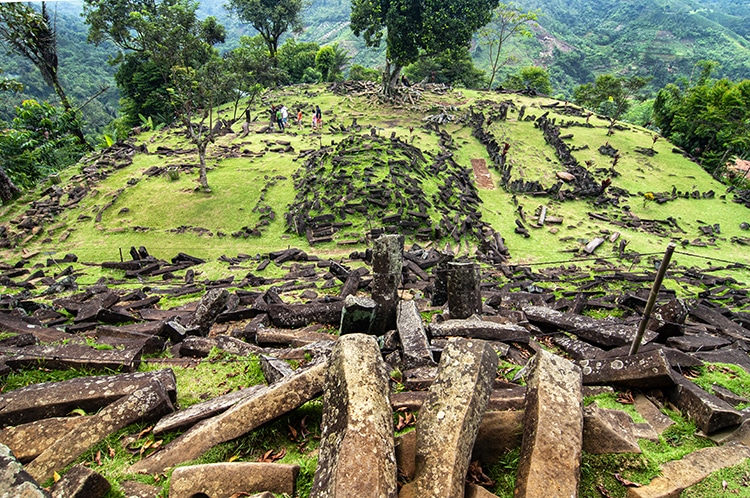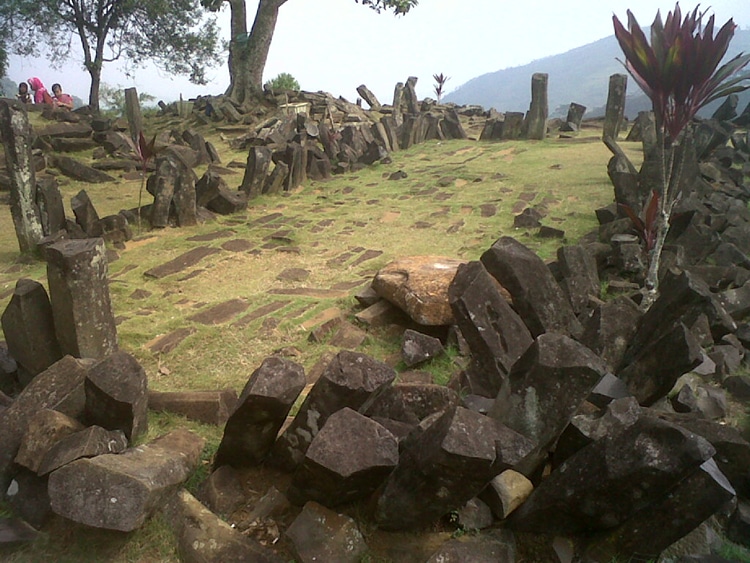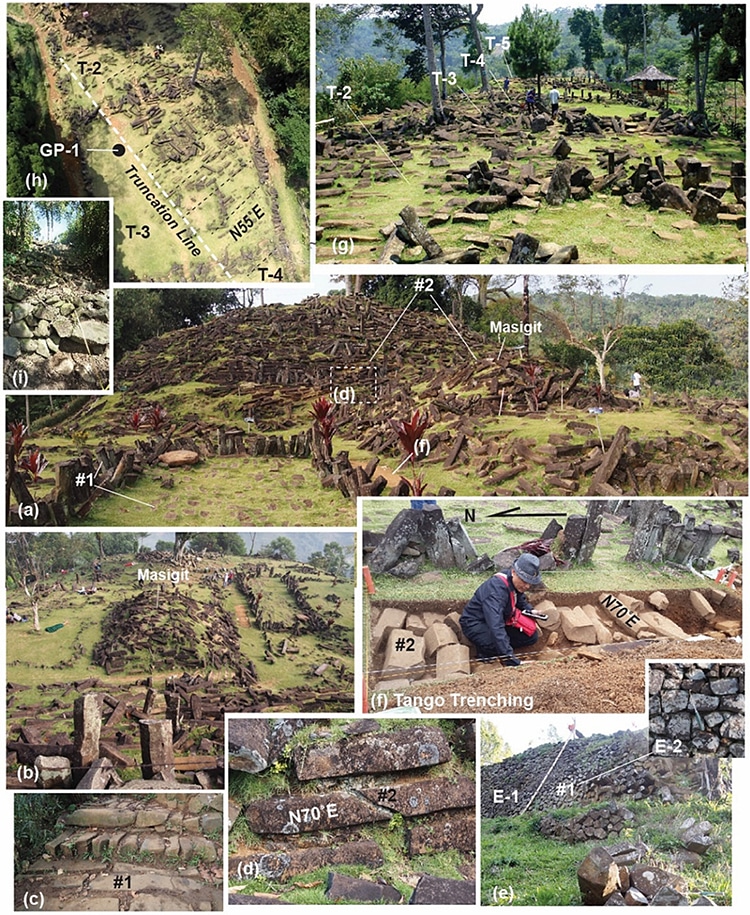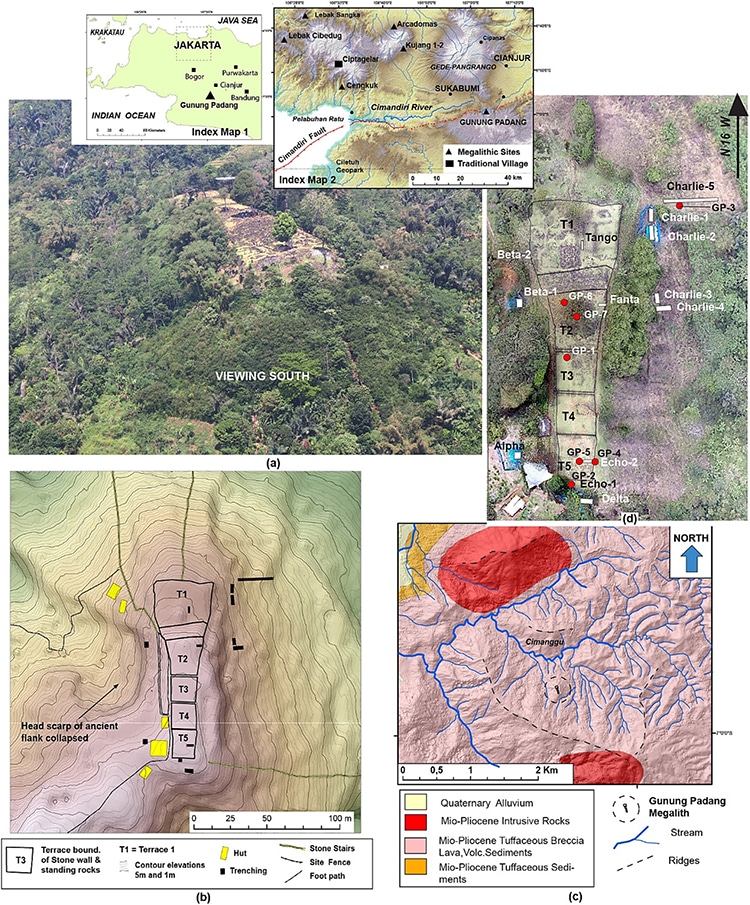
Gunung Padang in Indonesia. (Photo: RaiyaniM via Wikimedia Commons, CC BY-SA 4.0 DEED)
When most people think of the pyramids, they usually think of Egypt. Those iconic structures rise above the sands to remind viewers of ancient days. However, other ancient cultures built pyramid structures too, including the Mayans. But an underground example known as Gunung Padang may take the prize for the oldest pyramid structure. Gunung Padang is located in West Java, Indonesia, where natural volcanic rock was sculpted over thousands of years into a pyramidal structure topped with columns and more. Recent estimates published in Archeological Prospection suggest Gunung Padang’s construction began at least 16,000 years ago.
The hill in Indonesia is a form of punden berundak, or stepped pyramid. It is formed from a core of ancient lava which was shaped over thousands of years into terraces, one rectangular and four trapezoidal. Each terrace is bordered by volcanic rock columns. A central stairway consists of 370 steps. Geologists and archeologists have spent years trying to understand the history of the earthen pyramid. At its base is a layer of rock that was once lava released in a volcanic explosion.
The new paper postulates that between 25,000 and 14,000 BCE a layer was added to sculpt the structure. After a long lull, building spurts between 7900 to 6100 BCE and 6000 and 5500 BCE added rock columns and gravel-rich soil. The top soil and terraces were completed from 6000 to 5500 BCE. Yet these intermediary sections of work turned out to be more architecturally complex than previously thought. Seismic testing of the mound reveals interior chambers and passages with high ceilings and ample space. These chambers echo those on other megalithic structures, and are the next subject of investigation for researchers. The plan is to drill downwards and lower small cameras to investigate.
This ancient megalith was created over thousands of years.

The elaborate stonework of Gunung Padang. (Photo: Wikimedia Commons, CC BY-SA 3.0 DEED)
Much of the under-hill structure has yet to be fully explored.

Studying the site. (Photo: Natawidjaja et al.)

Studying the site. (Photo: Natawidjaja et al.)
h/t: [Science Alert]
Related Articles:
5,000-Year-Old Unopened Wine Jars Found in Queen’s Tomb
Ancient Life-Size Carvings of Wild Camels Are Discovered in the Deserts of Saudi Arabia
2,700-Year-Old Ancient Assyrian Lamassu Statue Is Excavated in Iraq
